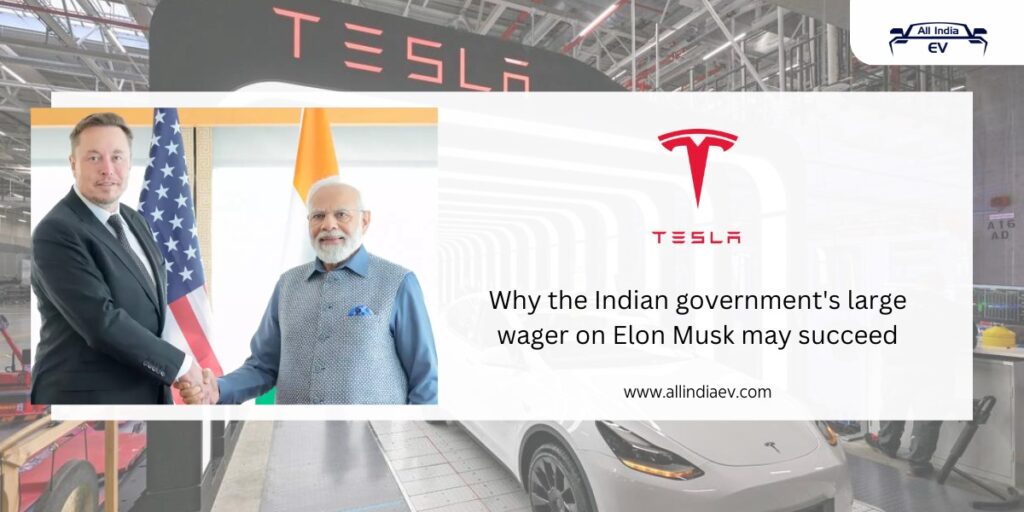
Elon Musk’s Tesla Gambit: India’s Strategic Move to Boost EV Manufacturing
Elon Musk’s persistent engagement with Indian authorities appears to have yielded results. Prime Minister Narendra Modi has been keen on Musk establishing a Tesla “gigafactory” in India to boost the nation’s dormant manufacturing sector. Musk, on the other hand, sought modifications in India’s import tariffs on electric vehicles (EVs), which made Teslas, manufactured abroad, less competitive in the Indian market.
On March 15, the Indian government unveiled a new initiative to foster EV investment. Companies ready to commit $500 million towards a new manufacturing plant, starting production within three years and initially localizing at least 25% of components, will be permitted to import up to 8,000 premium vehicles annually at a reduced tariff rate of 15%. This arrangement is anticipated to attract Musk, potentially alongside others like Vietnam’s Vinfast Auto Ltd., while existing market leaders in India’s EV sector prepare for heightened competition.
This strategy reflects a familiar tactic by Indian officials, leveraging the domestic market’s potential alongside high tariffs to entice investors like Musk. However, the approach signifies a broader vision. The Indian government values the impact of significant investors, demonstrated by its successful efforts to attract Apple Inc. and its ongoing attempts with Taiwan Semiconductor Manufacturing Co., aiming to stimulate sector-wide growth through such “anchor investors.”
China previously adjusted its policies to facilitate Tesla’s Shanghai gigafactory, highlighting the effectiveness of accommodating major investors to bolster local supply chains. India could further support this trend by encouraging investment in compatible charging infrastructure, considering the scarcity of land for multiple charging stations.
Tesla’s business model, emphasizing vertical integration and control over supply chains, positions it advantageously in negotiations for localization commitments. The introduction of companies like Tesla into India’s EV market poses challenges and opportunities for local manufacturers. Lowering trade barriers, as Tata Motors Ltd. might advocate, could enhance competitiveness against international entrants, emphasizing the importance of favourable trade agreements and a conducive business climate for manufacturing growth.
India’s industrial strategy, focusing on collaboration with established foreign entities to transform sectors, places a significant wager on companies like Tesla. Given Elon Musk’s record of unpredictability and delays, the government requires a bank guarantee from investing companies as a safeguard, embodying a principle of “trust, but verify.”

